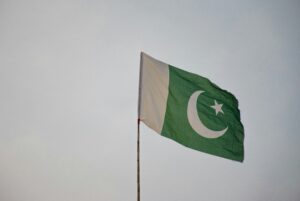The United States Treasury and the Qatari government designated an extensive Hezbollah financial support network spread across Gulf countries in a joint effort.
Operating within the financial systems of several countries, the Hezbollah financial network has used, as it turns out, real estate projects in Qatar, the UAE and Saudi Arabia, joint bank accounts and front companies to funnel funds to the terrorist organisation. The cross-border nature of the TF activities shows the necessity of information sharing and coordinated action to effectively raise barriers against the terrorist abuse of the system.
U.S. Treasury and Qatari joint action has added Ali al-Banai, Ali Lari and Abd Al-Muayyid to the designated persons list as Specially Designated Global Terrorists (SDGTs).
U.S. Treasury and Qatari joint action has added Ali al-Banai, Ali Lari and Abd Al-Muayyid to the designated persons list as Specially Designated Global Terrorists (SDGTs) for providing pecuniary, tech or material support or the provision of goods and services to or in support of the designated terror group Hezbollah.
Known supporters of Hezbollah who have added tens of millions of the dollars to the organisation’s terror chest abusing the formal financial system and utilising other means such as cash couriers, Ali Al-Banai and Lari also travelled to Lebanon and Iran to meet the officials of the terror group. Al-Banai started financially supporting Hezbollah through the designated Martyrs Foundation based in Kuwait, which is known to be supporting the families of terrorists. Al-Banai, along with his brother al-Muayyid controlled accounts in several banks and kept active ties with senior Hezbollah figures. Lari’s financial contributions to the terror group started in 2000 when he would deliver cash to seniors during his trips to Lebanon. He has been working with al-Banai to move funds from Qatar to organisations in the Hezbollah network.
The financial support system of the terrorist group sprawls from al-Banai and Lari to other associates and relatives: Abd al-Rahman Abd al-Nabi Shams (Shams), Yahya Mohammad al-Abd-al-Muhsin (Abd al-Muhsin), Majdi Fa’iz al-ustadz (Ustadz) and Sulaiman al-Banai, all of whom have been designated as SDGT’s pursuant to Executive Order 13224.
Development and real estate projects that act as a front for terrorism financing in several countries in the Arabian Peninsula comes out as an important detail.
Abd al-Rahman Abd al-Nabi Shams (Shams), al-Banai’s Bahrain based nephew was in charge of real estate projects in the country, and of collecting and delivering funds on behalf of Ali al-Banai. The Government of Bahrain has frozen the bank accounts of the al-Banai associate.
Abd-al-Muhsin, Saudi Arabia based relative of Lari has also been managing properties on behalf of al-Banai in Bahrain, Saudi Arabia and UAE. Keeping in correspondence with both al-Banai and Lari, al-Muhsin is found out to be regularly flying to Qatar to meet al-Banai, receiving hundreds of thousands of Qatari riyals.
Majdi Fa’iz al-ustadz (Ustadz) was, on the other hand, the coordinator of al-Banai’s commercial interests in Qatar. He owned properties that are used as collateral to obtain loans for in investments in Turkey.
The designation of the Hezbollah network has been the last action in a series of recent counter terrorism designations and proves increased coordination between Gulf countries and the U.S. law enforcement.
Sulaiman al-Banai, another relative, was the primary manager of Ali al-Banai’s business and financial enterprises in Qatar and owned the Qatar-based AlDar Properties, active in management of multi-family residential and commercial real estate in the county. The property company is designated on the grounds of being directed or controlled by Sulaiman al-Banai.
The designation of the Hezbollah network has been the last action in a series of recent counter terrorism designations by the U.S. Treasury and points at the strengthening of coordination between Gulf countries and the U.S. law enforcement.
The U.S. Treasury had most recently designated an Al-Qaida support network in Turkey. Joint designations of the Hezbollah network, according to OFAC Control Director M. Gacki, emphasized “the importance of continued cooperation… to protect the U.S. and international financial systems from terrorist abuse.”







